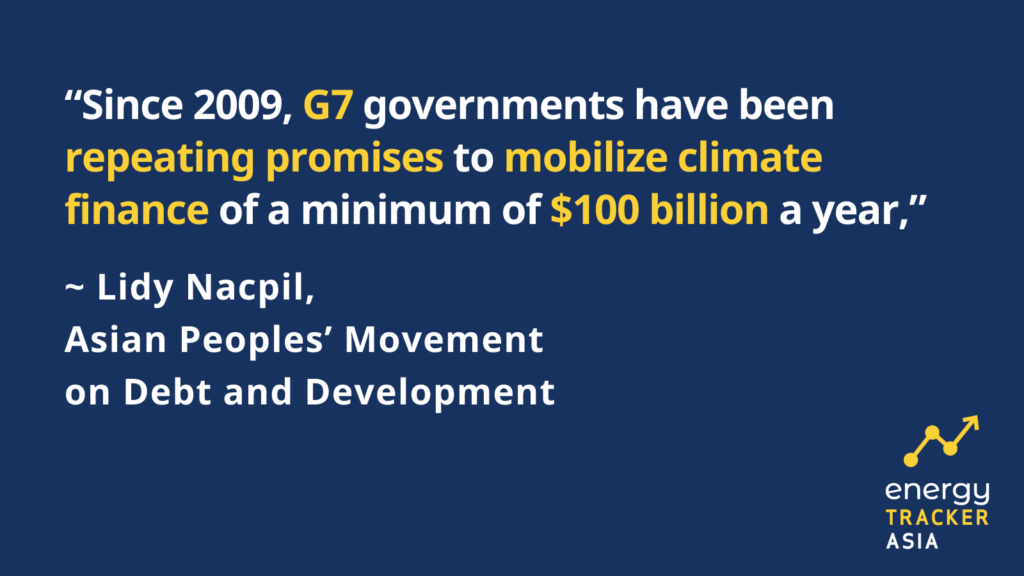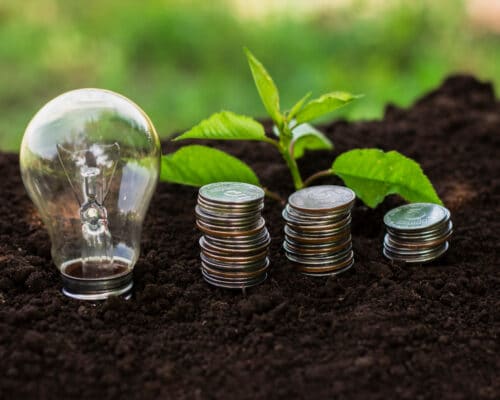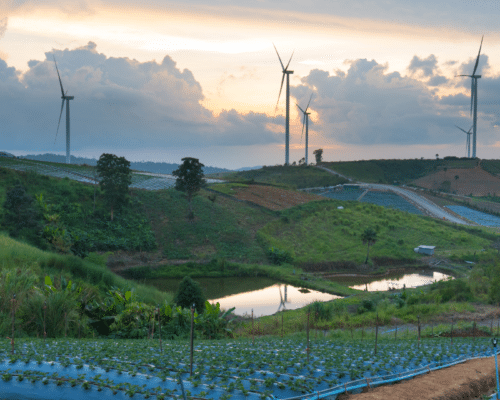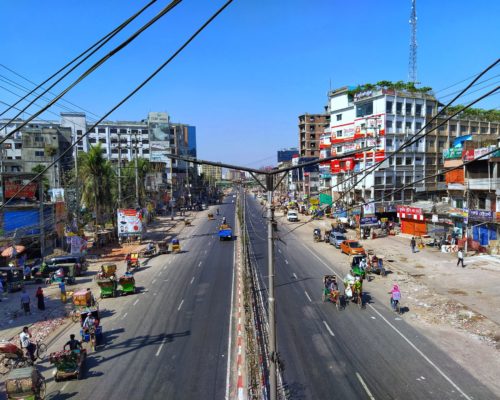G7 Summit: Activists Demand Fair Share Of Climate Finance
22 June 2021 – by Ankush Kumar Comments (0)
Despite its strong climate agenda, this year’s G7 summit left climate activists and scientists largely disappointed. During their meeting in Cornwall, UK, on 11-13 June 2021, the global leaders reaffirmed their commitment to net-zero no later than 2050. They agreed to halve their collective emissions over the two decades to 2030. Already by the end of this year, the G7 wants to stop coal funding in developing countries. However, climate finance should be increased to 2025. The group also pledged “to conserve or protect at least 30 percent of our land and oceans by 2030”, according to the final communiqué.
That said, activists warn the commitments were not enough to contain global warming. In Taguig City, Philippines, on 15th June, several climate campaigners gathered in front of the UK embassy. With banners, placards, and photos of the G7 leaders, they were seen demanding justice for climate finance.
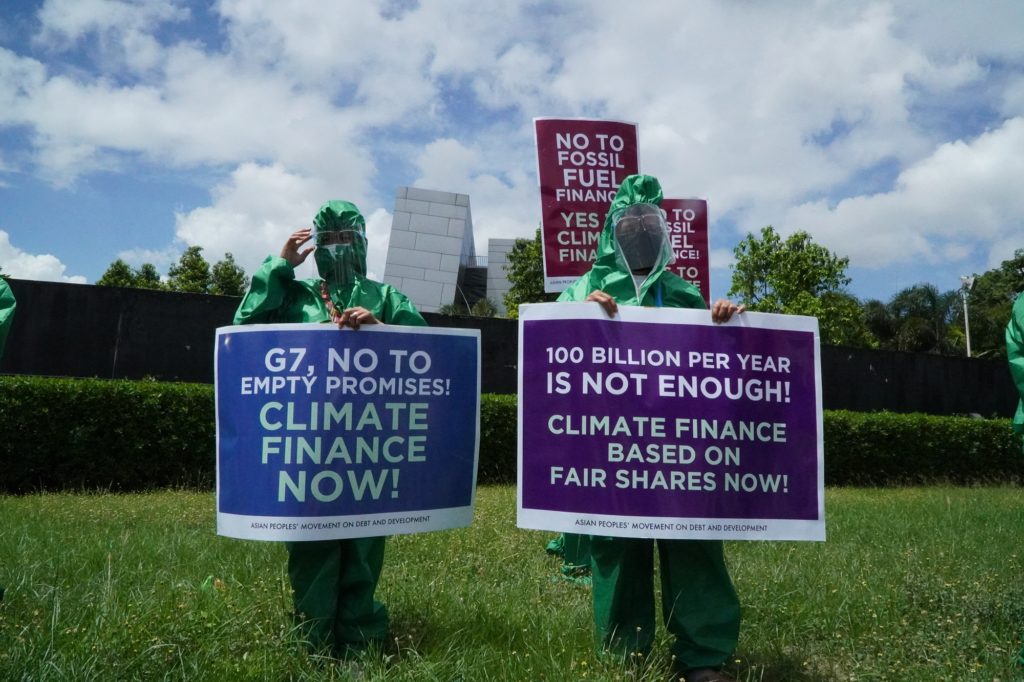
USD $100 billion Committed to mobilizing Climate Finance
The activists questioned the most critical commitment of the G7 – which was “to jointly mobilize $100 billion per year from public and private sources.” The group not only pledged to increase its own public climate finance contributions. They also called on other developed countries to join.
But the Asian Peoples’ Movement on Debt and Development (APMDD) argues that the world leaders have continuously failed to deliver on this very pledge. “Since 2009, G7 governments have been repeating promises to mobilize climate finance of a minimum of $100 billion a year,” Lidy Nacpil from APMDD reminded. Nacpil further added that the amount was a pittance compared to what was needed to limit global warming to 1.5 degrees.
Climate Change and Financial Resources
A report from CARE Denmark called “Hollow Commitments” has also raised serious questions about the G7 declarations. There was no clear evidence or outline on how the recipients would meet their target.
Also, climate adaptation efforts in developing nations remained severely underfunded. “Failure to finance urgently needed climate action directly threatens the lives of millions of people across the globe,” the report stated.
Lack of financial support to developing countries and low-income nations
There is no question that public climate finance has increased globally. It went up from USD $44.5 billion per year in 2015–16 to an estimated USD $59.5 billion per year in 2017-18, Oxfam observed last year. However, in 2017–18, only an estimated 20.5% of bilateral climate finance went to the Least Developed Countries (LDCs), Climate Finance Shadow Report 2020 showed.
The report further criticized that the donors overstate their climate assistance “by a huge margin”. For example, there were “significant inaccuracies” in broader development projects. “At the worst end of the spectrum, some countries (including Japan) count the climate component as 100% of the project budget”, Oxfam observed. But in these projects, climate action had not explicitly been defined as a primary target. And developing countries were at a clear disadvantage regarding climate change financial support.
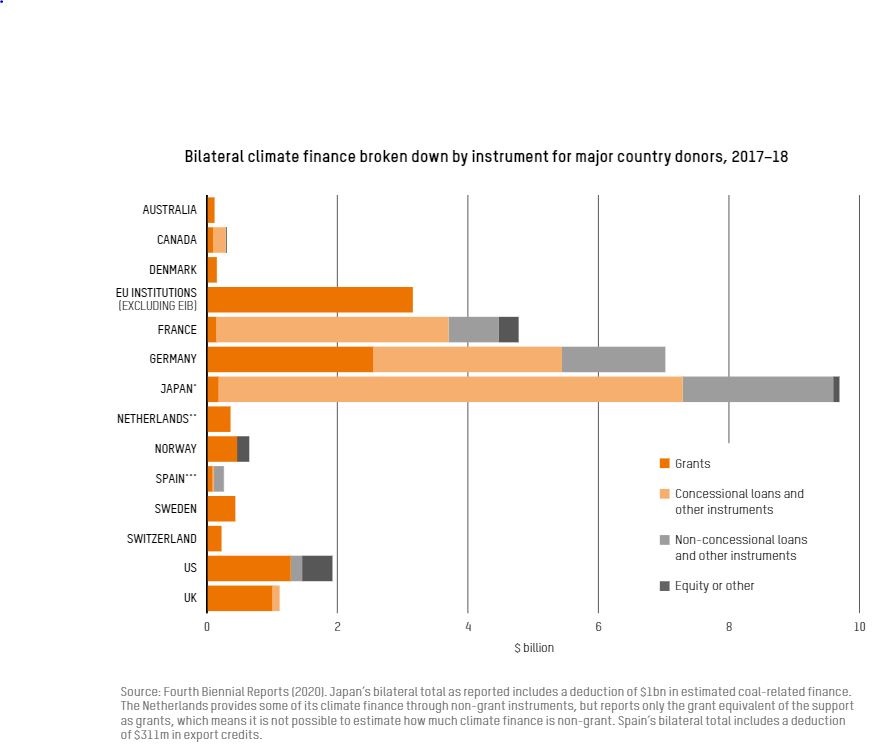
Excessive use of loans in climate finance and assistance
Furthermore, around 40% of public climate finance is non-concessional. This means it is not sanctioned to developing nations on terms considerate enough to entitle as Official Development Assistance (ODA). “The excessive use of loans and the provision of non-concessional finance in the name of climate assistance is an overlooked scandal,” the Oxfam report stated.
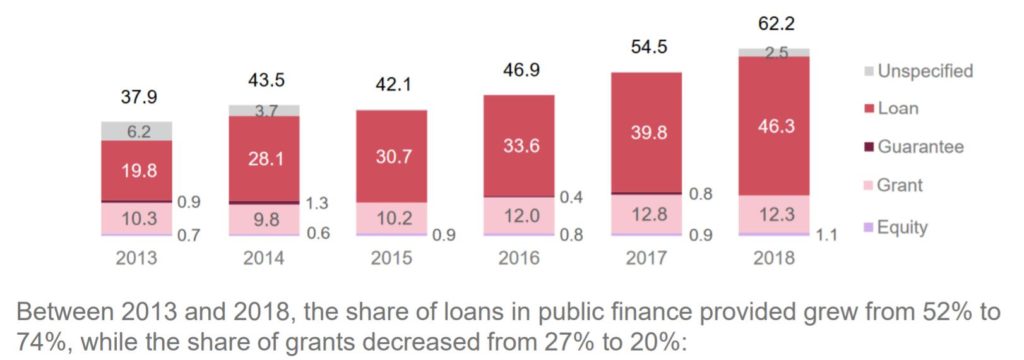
The loans as part of public climate finance in 2013 were USD $19.8 billion and almost doubled to USD $46.3 billion in 2018, another report from UNFCC and OECD shows. Grants in 2013-15 fluctuated around USD $10 billion per year and in 2016-18 around USD $12 billion. The report also stated that the low-income countries received a very small share of mobilized climate finance.
Climate Finance Flows
The Standing Committee on climate finance is tasked in assisting the COP. In fact, they are rsponsible for reporting, measuring and verifying any support given to a developing country. The United Nations Climate Change Conference has a Biennial Assessment and Overview of Climate Finance Flows. Here, they posited “The COP requested the Standing Committee on Finance to prepare a biennial assessment and overview of climate finance flows, drawing on the available sources of information, and including information on the geographical and thematic balance of flows.” The COP, in fact, asked the Standing Committee on Finance to consider various points to ensure that climate finance flows are checked. More info on these checks here.
Activists demand total fossil fuel exit
The other most awaited announcement at G7 was on fossil fuel financing. During the three-day event in Carbis Bay, the group committed “to an end to new direct government support for unabated international thermal coal power generation by the end of 2021”. This rules out Official Development Assistance, export finance, investment, as well as financial and trade promotion support.
To support the clean energy transition, the G7 points at an already pledged sum of USD $2 billion. This could mobilize up to USD $10 billion “in co-financing, including from the private sector,” according to the agenda.
How to Address Climate Change and End Fossil Fuel Usage
However, the activists demanded a more detailed approach. “We can’t afford to have the G7 miss the deadline to end fossil fuels,” said Wanun Permpibul of Climate Watch Thailand. Permpibul urged the G7 nations to declare the timelines for total coal exit and oil and gas phase out before COP26.
Fossil fuel financing by G7 nations
Over the years the G7 nations (UK, USA, Canada, Japan, Germany, France, and Italy, plus the EU) have played a significant role in strengthening the global economy. But despite their contributions and sustainability pledges, these nations have spearheaded fossil fuel financing across the world.
Climate Change and Fossil fuels: Our Financial Resources and their Usage
Between January 2020 and March 2021, they have invested more money into fossil fuels than green energy, according to a report of the British development agency Tearfund. “Coal, oil, and gas received USD $189 billion in support, compared to USD $147 billion for clean forms of energy, since the start of the pandemic,” the report stated. The G7 countries also top the list of the most polluting nations in the world. Being just a tenth of the global population, the combined G7 emits almost a quarter of the world’s CO2. The report calls for at least 40% of the Covid-19 recovery to be spent on green policies. Also, the G7 should ease the rising debt burden of the low- and middle-income nations.
Importance of G7 climate change discussions for Asia
Being the only Asian country in G7, Japan’s role was highly important in terms of discussions related to climate change. Although Japan has declared to reach net-zero by 2050, the island nation continues to build 6 GW of coal-fired power plants. “During pre-G7 negotiations, Japan has repeatedly attempted to stymie an agreement on ending overseas coal finance and refused to agree to end domestic coal by 2030,” No Coal Japan Coalition criticized.
Japan’s Financial Resources Used Towards Fossil Fuels Funding
Critics have also raised voices against Japan’s public financing of two fossil fuel projects – in Indonesia and Bangladesh. Both projects can have severe climate impacts and lead to the loss of livelihood, 35 NGOs warn.
The East Asia and Pacific regions account for one third of the world’s CO2 emissions and 60% of coal consumption. The nations in the region, especially developing countries, are also under severe debt burden. “The biggest emitters have an obligation to deliver climate justice,” stated Ian River of Philippine Movement for Climate Justice (PMCJ). River added that the summit was touted as a critical opportunity for the G7 to make significant commitments on the way to the COP26 later this year.
